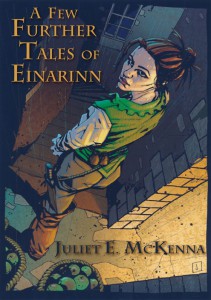This morning Tansy Rayner Roberts tweeted a link to this post by Stuffed Olive which neatly encapsulates the source of the problem with regard to the invisibility of women writers.
A brief re-cap. One of the main reasons, if not the main reason, why women writers are less successful than male ones is that while women readers are happy to read books by and about both men and women, many male readers only read books by and about men. There’s plenty of evidence to support this. I’m starting to regard people who continue to dispute it with the same disdain I reserve for Creationists.
So, why does it happen. Stuffed Olive reports a conversation with a teacher of English:
The English study texts at her own school, she informed me, are almost all centred around male characters. Except for one book about growing up under Islam, all the protagonists are male. Many of the texts are only about boys and men, for example The Road by Cormac McCarthy, and Of Mice and Men by John Steinbeck, while others possess only secondary female characters, the majority of whom are depicted as in need of protection by the male protagonists.
This is in Victoria, and there’s no national curriculum in Australia, so individual schools can, to some extent, set their own policy. Other parts of the world may be different. But I’ve already heard from Janet Edwards in the UK who said, “Every book we studied at school was either exclusively male or had a female minor character for comedy.” She added later that she went to an all-girls school.
So there’s your problem. If, as children, we are taught that the books we should be reading are by men, and about men, then it is only to be expected that boys will grow up thinking that they only need to read such books. Girls will read books about women too, because they want characters that they can identify with, but they’ll continue to read what they have been taught is the “good stuff”.
Clearly not all school curricula will be this bad, but I’m pretty sure that many are. And until we can fix this problem I don’t think that the issue of gendered reading habits will go away.
Feedback would be welcomed, especially from people who have been through school recently, or who are involved with setting school/examination reading lists in any way.

 It is that time when publishers get to feel all happy about a new project finally hitting the bookshelves. The first 2012 release from Wizard’s Tower will be A Few Further Tales of Einarinn, a short story collection from the fabulous Juliet E. McKenna. This is the cover. You can learn more about the book
It is that time when publishers get to feel all happy about a new project finally hitting the bookshelves. The first 2012 release from Wizard’s Tower will be A Few Further Tales of Einarinn, a short story collection from the fabulous Juliet E. McKenna. This is the cover. You can learn more about the book